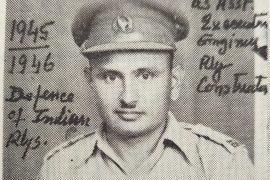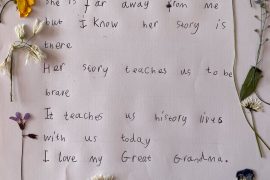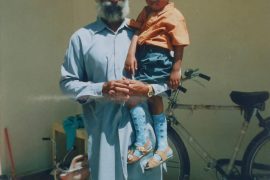Can the moral panic about Islam in Britain today affect how we tell our own British Muslim histories? Yahya Birt reflects on his surprise about how much contemporary politics is casting a veil over even this relatively uncontentious area of Muslim cultural life.
In October 2014 I started a doctorate at the University of Leeds. I’m aiming to illuminate an important part of the complex history of post-war Muslim Britain – its political activism. We can understand Muslim community politics today better if we tell important parts of its history that date back to the sixties. I hope to find out more through a combination of archival research and interviews.
In June 2015 I began to contact people and organisations directly whom I had identified as holding important records. So far as British Muslim institutions are concerned, this is necessary because few organisational records have been professionally archived. Notable exceptions include the new East London Mosque archive and the records of the Shah Jahan Mosque in Woking held at the Surrey History Centre.
One of my goals is to begin a discussion about how best to preserve these unarchived records with a view to finding workable solutions. There is some urgency because records are being lost. For instance, one important post-war Muslim women’s activist organisation neither holds its records nor a complete run of its magazine, which is tragic.
When I’ve approached people, their response has been overwhelmingly positive. One community statesman said he had been waiting to tell the story of his generation and pass on important records responsibly.
It was not surprising that another activist cautioned me about negotiating the contentious elements of this history. Differing accounts reflect the various perspectives of those who lived through those times. This is of course true of history in general and is hardly unique to our community. I can only strive to ensure that I portray each perspective fairly and accurately.
But what has really surprised me is that David Cameron is having an effect on my PhD. I didn’t expect the Prime Minister’s current drive against extremism to be affecting how British Muslims tell their own history quite so sharply. It is apparent in practices of silence and self-censorship.
The silence comes from the reluctance of some to talk about what they perceive as their radical pasts. This is particularly true of Muslim millennials – the generation that came to political prominence after 7/7. They regret what they see as a misspent youth, have no wish to advertise it now and prefer to pass over it in silence. This of course is their right. But it is revealing that the tolerance shown for youthful radicalism in British politics – either on the left or right – seems less likely to be forgiven or forgotten for Britain’s publicly active Muslims.
Self-censorship emerges for a similar reason, namely from the wish to preserve reputations to enable continued and effective public participation. Normally British Muslim organisations with long track records of community service hold commemorative events and may even mark a milestone anniversary with a publication about their history, contribution and achievements. However, I was told recently that a community organisation dispensed with such a publication for fear that it might foster perceptions that it was “extremist”. This has become a live consideration in recent years for Muslim community organisations, most of which are charities, as the charity sector’s regulatory body, the Charity Commission, has new responsibilities and powers to tackle extremism.
It is shocking that the government’s counter-terrorism policy not only chills political dissent and free expression about contemporary issues but also how Muslim communities might preserve, record and pass on their own histories to future generations. It is very important that we consider the potential effects of silence and self-censorship and how we might find ways as a community to combat and overcome them in order that important aspects of our history are not lost forever.
Yahya Birt is undertaking a doctorate at the University of Leeds. If you have any materials or records relating to political activism in the British Muslim community between the 1960s and 1990s and wish to get involved then please contact him via prjjb AT leeds.ac.uk



Comments are closed.